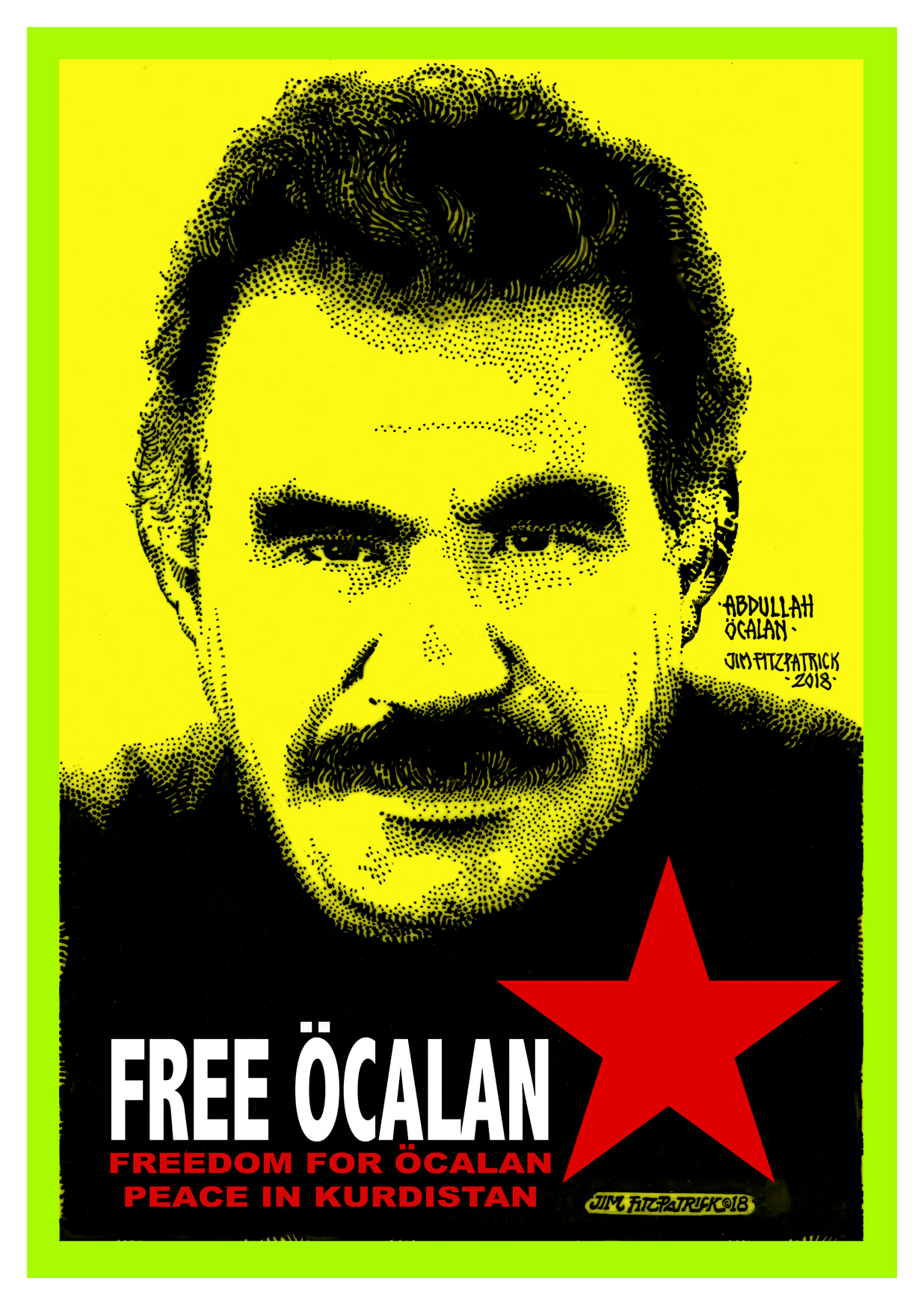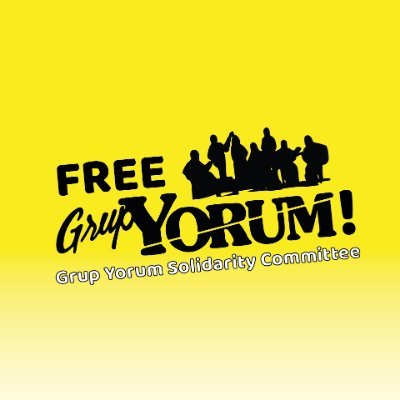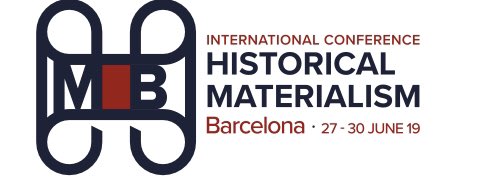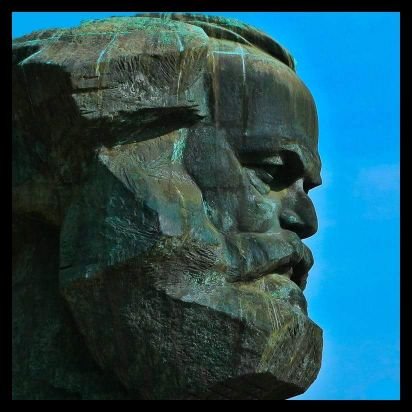«Notes on Marxism in Britain since 1945»: Raymond Williams
 ‘The neo-Marxist Left which now dominates the Labour Party’, said a speaker at this year’s Conservative Party conference. Or it may have been ‘near-Marxist Left’, given the difficulty of ruling-class English with the consonant ‘r’. In other speeches either qualification was dropped: the ‘Marxist Left’ now ‘dominates the Labour Party’. Everything goes fuzzy as these terms circulate. What a triumph it would be if the main governing party of the last twelve years were indeed now guided by a system of political thought which until 1960 and beyond was very generally regarded as un-English, irrelevant and irremediably out-of-date. To unpick the rhetoric which would induce such a fantasy is a complicated task, but looking back to 1945 one point can be made immediately. ‘Marxist’, in these years, has changed its meaning—or, more strictly, has taken on additional meanings. What would have been said in 1945, in the same kind of speech, was that the Labour Party was dominated, or at least heavily influenced, by ‘Communists and fellow-travellers’. Of course, we still hear about ‘Communists’, or about ‘Communists and Trotskyites’, in the unions and elsewhere. ‘Fellow-travellers’ I have not heard in many years, perhaps since the Sputnik. But what is new is this all-purpose term ‘Marxist’ to describe—what? The whole Left in Britain, it usually seems, from Tribune to out of sight. And it is certainly a problem that this use co-exists with the phrases of polemic within the socialist culture, in which almost everyone can inform almost everyone else, in snappy and putting-down ways, that ‘this position has nothing in common with Marxism’, or that ‘measured against Marxism this position reveals itself as . . .’, and then comes the deluge.
‘The neo-Marxist Left which now dominates the Labour Party’, said a speaker at this year’s Conservative Party conference. Or it may have been ‘near-Marxist Left’, given the difficulty of ruling-class English with the consonant ‘r’. In other speeches either qualification was dropped: the ‘Marxist Left’ now ‘dominates the Labour Party’. Everything goes fuzzy as these terms circulate. What a triumph it would be if the main governing party of the last twelve years were indeed now guided by a system of political thought which until 1960 and beyond was very generally regarded as un-English, irrelevant and irremediably out-of-date. To unpick the rhetoric which would induce such a fantasy is a complicated task, but looking back to 1945 one point can be made immediately. ‘Marxist’, in these years, has changed its meaning—or, more strictly, has taken on additional meanings. What would have been said in 1945, in the same kind of speech, was that the Labour Party was dominated, or at least heavily influenced, by ‘Communists and fellow-travellers’. Of course, we still hear about ‘Communists’, or about ‘Communists and Trotskyites’, in the unions and elsewhere. ‘Fellow-travellers’ I have not heard in many years, perhaps since the Sputnik. But what is new is this all-purpose term ‘Marxist’ to describe—what? The whole Left in Britain, it usually seems, from Tribune to out of sight. And it is certainly a problem that this use co-exists with the phrases of polemic within the socialist culture, in which almost everyone can inform almost everyone else, in snappy and putting-down ways, that ‘this position has nothing in common with Marxism’, or that ‘measured against Marxism this position reveals itself as . . .’, and then comes the deluge.
What are the reasons for the shift in general use? And when did it occur? These are the first questions about Marxism in Britain since 1945. Some of the reasons are not hard to find. Until 1956, though minor variants existed and were known to specialists, there was a simple general equation between Marxism and the ideological positions of the Communist Party, representing a body of Communist Parties led by that of the Soviet Union. From 1957 onwards, there was a rapid proliferation of other organizations and groups which claimed, if in different ways, the significant inheritance of revolutionary socialist practice and Marxist theory. It was reasonable, in this situation, to begin to speak more generally of ‘the Marxist Left’. Then, from the early 1960s, there was the open ideological split between the Soviet Union and China, each with its ruling Communist Party and its competitive version of Marxist theory and practice. Variations extended from Cuba to Vietnam; Yugoslavia was remembered. ‘Marxist’ coexisted with ‘Communist’, but by the mid-1970s the liberation movements of Mozambique and Angola were known, in general English description, as ‘Marxist guerrillas’. If it was a long way from frelimo and the mpla to the Left of the Labour Party, still the general term was used, to cover a multitude of sinners.
But there is then, beyond this accessible history, an immediate problem. If Marxism is not only a theory but a theory of practice, it becomes very difficult to use the same general term to describe such evident variations of practice, and especially in Britain where (at least on the mainland) all known Marxist groups were taking part in an open and legal political process. This could be explained by referring to the specific conditions of British society and other West European societies, but what then followed was the disappearance of any obvious dividing line between Marxists and other socialists. Certain extraordinary contortions around ‘socialist’ and ‘social democrat’, and around the (American) classifications of ‘extremist’ and ‘moderate’, were attempted in order to redraw the line. But these only further confused the general use of ‘Marxist’, since (and this was especially true in Britain) socialists who were not, did not claim to be, or positively denied that they were Marxists were nevertheless swept, by their ‘socialist’ or ‘extremist’ views, into the general ‘Marxist’ classification.
Terminological Shift to the Right
This point has immediate relevance to the diagnosis that the ‘Marxist Left’ now dominates, or significantly influences, the Labour Party. Looking back to 1945, it seems to me quite evident that there is a decisive continuity, over these three decades, of what can be specifically identified as the Labour Left. It is true that this is not easy to identify within any more general range of theoretical positions, but this is because it is an amalgam of theories within a specific practice, in specific social and historical conditions. Elements of Marxism, indeed, are part of the amalgam: the general analysis of capitalist society, and the consequent policy of seizing at least the ‘commanding heights’ of the economy. But there are also significant elements of other systems: of Keynesianism, for example, in the policy of public investment in capitalist industry to expand production and to maintain full employment; of Fabianism, in the policy of public boards and experts to manage ‘nationalized’ (as distinct from ‘socialized’) industries and services; of Liberalism—especially in its Lib-Lab phase—and again of Fabianism, in its theory of the social services as the ‘Welfare State’; of a liberal anti-imperialism—political freedom for colonial peoples; and of a non-Marxist, anti-capitalist critique of industrial capitalism and of militarism. We can identify this amalgam, now, as the Labour Left, but we could once identify it (and can still when it is in opposition) as the Labour Party. In strictly Marxist terms, as I understand them, this is precisely Social Democracy, in its post-1917 sense. But it is now called Socialist or Marxist. The whole spectrum of the political vocabulary has thus been moved to the right. For these traditional Social Democrats are distinguished from others, in the centre and right of the Labour Party, who retain only elements of the amalgam, mainly Fabian, Keynesian and Lib-Lab, who have settled permanently for the ‘mixed economy’ (capitalism sustained and made more efficient by state intervention), for ‘welfare’ programmes financed out of profits and out of growth, and—decisively—for military alliance against socialist and national-liberation movements, but who are still after this, after all this, called Social Democrats.
If then, making necessary distinctions, we identify the Labour Left as the real Social Democrats, we may have cleared the ground for a more accurate definition of Marxism and Marxists in Britain since 1945. But there is again an immediate difficulty. A majority of groups which would define themselves as Marxist have, throughout this period, identified themselves in practice, and in locally supporting theory, with just this version of Social Democracy. There have been extra emphases here and there: on workers’ control in industry; on democratization of the social services; on solidarity with liberation movements; on withdrawal from the military alliances; on opposition to neo-colonialism. But all these emphases have been made also within the Labour Left. Until 1957, the only major dividing line between the Labour Left and most Marxists was in attitudes to the Soviet Union. But while that still holds for the Communist Party, it does not hold in many other Marxist groupings. A majority of Marxist groups, meanwhile, support the election and continuation of a Labour Government. There are serious political reasons for all these connections and alliances, but there is the obvious danger, again, of sweeping the whole Left into the description ‘Marxist’ or, just as seriously, of sweeping all (or almost all) British Marxism into this amalgam of Left theory and practice.
The Three Strands of Theory
One way out of this confusion, which has been widely taken since the early 1960s, has been a concentration on Marxist theory. If political practice could be only occasionally and temporarily distinguished from a much broader spectrum of the Left, then at least in theoretical positions a distinctive Marxism could be maintained. But there are at least three strands within this ‘theoretical’ option, and it is important to distinguish them, even where in practice they have overlapped or coexisted within the same persons and groups. The earliest strand to appear, notably from 1957 but with isolated examples from the late forties, can be called ‘legitimating’ theory. Closely or exclusively connected with arguments about the character of Soviet society, this kind of work led to distinctions of theoretical and then often organizational position in terms of the unfinished struggle within the world Communist movement. As world Communist divisions and variations became more open, theoretical and organizational reflections of all the major positions— Soviet, Chinese, Cuban, Yugoslav and eventually Euro-communist (Italian)—were adopted and asserted or reasoned in British theoretical work. What was at issue, in these cases, was the legitimate inheritance of an authentic Marxism—including the identification of an authentic, Marxist Marx—and thus, hopefully, an authentic revolutionary tradition.
Then, secondly, there was a decisive insertion or re-insertion of Marxism into a range of strictly academic work. Again there had been earlier examples, but in the academic expansion of the sixties and early seventies there was a qualitative difference, quite evident to anyone who had also experienced the academic world of the forties and fifties. The strongest work was, perhaps significantly, in English history, which already had a strong base in the work of the Communist Party historians. But there were also significant contributions in economics, sociology and political theory, and, most remarkably, in the history and scholarship of Marxist thought itself. This important body of academic work is, incidentally, yet another reason for the change in the usage of ‘Marxist’ and its common replacement of ‘Communist’. For what was most evident in most of this work was that it was academically professional history or economics or some other ‘subject’, which had also a set of distinctive theoretical assumptions or methodological procedures. It was, therefore, in an increasingly reputable and respectable sense, the work of Marxist academics; the question of ‘communism’ or one of its variants did not necessarily arise.
Thirdly, however—in some cases inextricable from work of the first or second kinds, in other cases quite clearly distinguishable—there was an attempt to build ‘operative’ theory: theoretical analysis of late capitalist society; theoretical analysis of the specificities of British late capitalist society; theoretical analysis of the consequent situations and agencies of socialist practice.
It is important to distinguish these three kinds of work—legitimating, academic and operative—because their varying proportions seem to me to determine the character of Marxism in Britain in different parts of this period (the leading period for operative theory, for example, was 1957–68, whereas we have since been, and still perhaps are, in a predominantly academic period). Each kind of work has had to be done. But while legitimating theory, at its best, leads to clearer orientations within an inescapably international political process, it can lead, at its worst, to a series of self-alienating options, in which our real political presence is as bystanders, historians or critics of the immense conflicts of other generations and other places, with only marginal or rhetorical connections to the confused and frustrating politics of our own time and place. Again while academic theory, at its best, gives us the necessary foundations for any operative theory, it can, at its worst, be quite quickly incorporated—the unlooked-for recognition of the untouchable becoming, rather smoothly, the invitation to stay—within the fluid eclecticism now characteristic of academic institutions, until even Marxism becomes a ‘subject’.
Moreover, through the conflicts of legitimating theory, and in the very amplitude of academic theory (in its establishment of several clear and alternative Marxist traditions, and its critique of particular selective traditions), it becomes more and more difficult to use ‘Marxism’ as the crucial definition of alignment which, in the late forties, it ordinarily was. It becomes, that is to say, less and less an adherence to any significant kind of operative theory—a theory carrying practice—to announce, flatly, that one is a Marxist and (which follows in polemic as night follows day) that someone else is not, or is not yet, or might yet be, or could well be if he tried. Is or is not what, any serious inquirer is bound to ask, as he sees the significant and important variations of operative Marxist theory (leaving aside the even wider variations of legitimating and academic theories) on such central questions as class, culture, the democratic process, the capitalist state, productive forces, the division of labour, industrial growth and political organization.
I do not mean that a significant affiliation to the Marxist tradition is not now possible, in good faith. On the contrary, I believe that in operative theory it is crucial, in the crisis we are now entering. But as it is made, in what will in many of its elements be essentially unfamiliar ways, in the genuinely unprecedented social and economic crisis now so rapidly developing, it will of course be necessary to have continual discussion and contestation. This will only be impeded if the polemical habit of measuring everything against a pure (and therefore often undefined) essence called Marxism is revived, as if this were 1948 or for that matter 1483. It will indeed be necessary to move beyond the eclecticism of the ‘New Left’ of 1957–63, but only by identifying the altered social relations to which that mixed movement was a response and by developing and completing theories of those altered social relations—rather than by reverting to the orthodoxies which then had to be broken (and not only by-passed) or, as irrelevantly, by resolving the confusions of experience in an academically congenial formalism. It will be even more necessary, as a matter of direct practice, to move beyond the eclecticism—which has been brave and generous as well as limited and self-limited—of the Labour Left, but this will again only be impeded by the (on the evidence, quite unwarranted) assumption that, as practice rather than as criticism, there is already a thing called Marxism which has simply to be announced and applied. This may be seen more specifically if we look at three issues which have been important in Britain throughout the post-war period, and which are currently identified, at least in polemic, as populism, culturalism and reformism.
Populism
It is only in formalist or categorical criticism that we can speak of ‘populism’ as if it were some constant position. In radical history, from the bourgeois revolutions through to many parts of the labour movement, and in socialist history, in its significant and now crucial connection with national liberation movements, the habitual assumptions and strategies of populism—a mobilization of the existing resources of ‘the people’ against a native or alien ruling class—have an honourable record. At the same time we have seen, in the twentieth century, a ‘populism’ of the Right, superficially similar, in which a version of ‘the people’ is effectively mobilized, in periods of social crisis, as a way of altering the character of class rule or of foreclosing socialist solutions. If we note that both the assumptions and the rhetoric of ‘populism’ survived into much modern Marxism, even though the crucial redefinition into classes had been its major and distinctive theoretical contribution, we become aware of two problems: first, that most ‘Marxist’ movements, as distinct from some Marxist theories, grew out of and inherited and often depended on radical movements of other kinds; secondly, that the relation between ‘class’ and ‘nation’ (‘people’) proved to be exceptionally complex, and indeed is still complex.
In Britain since 1945, a form of populist proposition—the category ‘the people’—has been very common in Marxism. It has also become common in the political rhetoric of every electoral party. Thinking now only of Marxism, I remember my 1939 induction, in literary studies, into topics and titles such as ‘The Novel and the People’, ‘Poetry and the People’, ‘A People’s Theatre’. I had initial sympathy with them; my own class and for that matter my own people had little representation in the orthodox cultural world that was offered to me. In that sense, and in the work which has been done within English Marxism, with notable fullness and authority in the decades since 1945, the impulse which some now characterize as ‘populism’ is in my view strong and indispensable. I still prefer the productive popular formations of the Left of the thirties, and their successors today in popular and community publishing and drama, to the largely critical milieu of one kind of later Marxism.
 At the same time, I remember reading an article in Modern Quarterly in Autumn 1951 (it was in the same issue as the continuing Caudwell discussion, which shows many of the limits of pre-1956 Marxist cultural argument—‘not Marxist’ and so on—but shows also a divergence of fundamental positions which is not usually, in retrospect, acknowledged). The date is significant, for this was a turning-point in the whole post-war period, when the Labour Government was just being defeated (though on its highest ever electoral vote) and the outlines of a successful post-war capitalism—the credit and consumer society—were beginning to form. I then read with what was doubtless an excessive incredulity and anger one of the ordinary propositions of what I and everyone else knew as English Marxism. It was on the Festival of Britain: ‘Most of these Exhibition artists are lost, are pitifully out of touch and behind the people in 1951. The people have grown in stature, their aspirations are nearer to fulfilment. Until the artists turn their way with all their sight and all their capacity, the source from which their work should flow is dead and dry and will become more so. It shows. The people see it. The artist’s only place for his life and strength is theirs, is with the people’s struggle.’
At the same time, I remember reading an article in Modern Quarterly in Autumn 1951 (it was in the same issue as the continuing Caudwell discussion, which shows many of the limits of pre-1956 Marxist cultural argument—‘not Marxist’ and so on—but shows also a divergence of fundamental positions which is not usually, in retrospect, acknowledged). The date is significant, for this was a turning-point in the whole post-war period, when the Labour Government was just being defeated (though on its highest ever electoral vote) and the outlines of a successful post-war capitalism—the credit and consumer society—were beginning to form. I then read with what was doubtless an excessive incredulity and anger one of the ordinary propositions of what I and everyone else knew as English Marxism. It was on the Festival of Britain: ‘Most of these Exhibition artists are lost, are pitifully out of touch and behind the people in 1951. The people have grown in stature, their aspirations are nearer to fulfilment. Until the artists turn their way with all their sight and all their capacity, the source from which their work should flow is dead and dry and will become more so. It shows. The people see it. The artist’s only place for his life and strength is theirs, is with the people’s struggle.’
I did not see it all then, but I brought some things together: the powerful new pull of that public-relations and advertising Festival style; the glossy futurism against the hard, rationed, sharing world of the war; and then the options, under pressure, of so many actual people; the probability of the stylish consumer society which would be the new form of capitalism. From then till now I have never been a populist, in the sense of that residual rhetoric. But because I saw the process as options under pressure, and knew where the pressure was coming from, I could not move either to the other available position: that contempt of people, of their hopelessly corrupted state, of their vulgarity and credulity by comparison with an educated minority, which was the staple of cultural criticism of a non-Marxist kind and which seems to have survived intact, through the appropriate alterations of vocabulary, into a formalist Marxism which makes the whole people, including the whole working class, mere carriers of the structures of a corrupt ideology.
On through 1955 and 1959, with a majority of English people (though not of Scots or Welsh) opting for consumer capitalism, it was hard to hang on, but it was still not true that the existing resources of the people were so depleted or corrupted that there was no option but to retreat to a residual minority or a futurist vanguard. It was a case (as the early New Left most notably emphasized) of a people both changing and being changed, but always differentially: the political geography as well as the political sociology of Britain needed quite new kinds of exploration. There were still, and still powerful, existing resources. There were observable new forces, which taking consumer-credit capitalism at its word, made demands on it which eventually threw it into prolonged crisis. There were new resources, in a healthier and better-educated generation. There were also continuities, some of them crucial. The South Wales miners in 1973 carried a poster saying ‘This time we shall win’, and only a few people outside them knew that it was a reference back to 1926.
What then of populism? To stay with the existing resources; to learn and perhaps to teach new resources; to live the contradictions and the options under pressure so that instead of denunciation or writing-off there was a chance of understanding them and tipping them the other way: if these things were populism, then it is as well that the British Left, including most Marxists, stayed with it. On the other hand, of course, to go on insisting that ‘the people’ were simply being betrayed or manipulated, never mind the changes that were being lived into the fibres: that was a kind of populism, and I suppose it reaches its ironic dead end when, with a theory of ideology substituted for both culture and experience, a hypothetical new people will be delivered at a stroke, or at a rupture.
One harsher note about this new use of ‘populism’ as a term of abuse of parts of the Left. I remember an extraordinary experience during the Cold War when the institution I worked in was almost evenly divided between Communist Party members (Marxists, we would now say) and Labour Party members. For internal reasons it became very bitter, and there was both intrigue and witch-hunting. It was a curious phenomenon that at the worst moments I was the only person to whom both sides spoke: the Communists because I shared their intellectual perspectives and most of their political positions; the non-Communists—but there’s the rub—because I, like almost all of them, was from a working-class family and had the same tastes in food and drink and enjoyment, whereas most of the Communists (Marxists) were public school boys to whom much of our incidental behaviour was vulgar. I joined neither camp, but I remember the experience, and I remember it especially when any later generation, coming from where it will, starts using either form of the contradictory rhetoric: either ‘these bloody Communist (Marxist) intellectuals’ or, on the other hand, the more abstract diagnoses of vulgarism, corporatism, workerism or populism.
What has been at issue, throughout, is a crisis of relationships, within a crisis of change. Certainly the assumptions of ‘the people’ and, moreover, after so much change, of ‘the working class’ will have to be reworked in detail; are already in part being reworked. It is a process that must not be impeded by abstract categorical assignments.
Culturalism
It is now widely conceded that what was known, at the beginning of this period, as Marxist cultural theory (which incidentally, for those of us then working in it, came through not only as Engels and Plekhanov, or Fox and Caudwell and West, but as Zhdanov) needed radical revision. On the whole this has happened, in the Marxism of many different national traditions, of course with results that are still controversial.
It took me thirty years to move from that received Marxist theory (which I began by accepting) through various transitional forms of theory and inquiry, to the position I now hold, which I define as ‘cultural materialism’. The emphases of the transition—on the production (rather than reproduction) of meanings and values by specific social formations, on the primacy of language and communication as formative social forces, and on the complex interaction both of institutions and forms and of social relationships and formal conventions—may be defined, if any one wishes, as ‘culturalism’, and even the crude old (positivist) idealism/materialism dichotomy may be applied if it helps anyone. What I would now claim to have reached, but necessarily by this route, is a theory of culture as a (social and material) productive process and of specific practices, of ‘arts’, as social uses of material means of production (from language as material ‘practical consciousness’ to the specific technologies of writing and forms of writing, through to mechanical and electronic communications systems). I can only mention this here; it is spelled out in a forthcoming book, Marxism and Literature. What bears on this note is that what turned out to be, when developed, a materialist (but non-positivist) theory of language, of communication and of consciousness was assigned, along the way, to ‘idealism’ just because, in received Marxist theory, these activities were known to be superstructural and dependent—so that any emphasis on their primacy (a primacy co-equal with other forms of the material social process, including those forms which had been abstracted as ‘labour’ or ‘production’) was known a priori to be ‘idealist’.
 On the other hand, it is certainly true, and for a significant reason, that the relations between this account of cultural process and the more general social and political process were insufficiently explored, theoretically, though they were inquired into again and again, empirically. One particular confusion, on both sides of the argument, was on the question of ‘struggle’: what has been called the substitution of an ‘extensive’ for a ‘conflict’ theory. I thought I had indicated my own position clearly enough in calling the process a long revolution; perhaps the trouble was that it was indeed long, and that it was much easier to go to a meeting and say that it should be short. But then again I did, and still do, find extension, transfer, slow development at least as often as I find the transitional process, transformation, and as often, also, as explicit conflict and struggle. What I would still rest on is that this is not a shop-counter of theoretical options. It is, or it can become, a theory of the historical variations of cultural process, which then necessarily connects (has to be connected) with a more general social, historical and political theory.
On the other hand, it is certainly true, and for a significant reason, that the relations between this account of cultural process and the more general social and political process were insufficiently explored, theoretically, though they were inquired into again and again, empirically. One particular confusion, on both sides of the argument, was on the question of ‘struggle’: what has been called the substitution of an ‘extensive’ for a ‘conflict’ theory. I thought I had indicated my own position clearly enough in calling the process a long revolution; perhaps the trouble was that it was indeed long, and that it was much easier to go to a meeting and say that it should be short. But then again I did, and still do, find extension, transfer, slow development at least as often as I find the transitional process, transformation, and as often, also, as explicit conflict and struggle. What I would still rest on is that this is not a shop-counter of theoretical options. It is, or it can become, a theory of the historical variations of cultural process, which then necessarily connects (has to be connected) with a more general social, historical and political theory.
The point that now most interests me, looking back at Marxism in Britain since 1945, is that though I was well aware of my struggle with what was current as Marxist cultural theory, I made the mistake of assuming that, in other areas of theory and therefore in other parts of the social process, Marxism already possessed adequate principles, procedures and positions, and that in some cases, at least, I could take them for granted. All through the forties and early fifties, I used to go to my Marxist friends who were economists or political theorists to be told, to have explained, what was happening. It was only in the late fifties, when I could see that it was not, and that there were other available socialist explanations, that I began to realize that what was needed was much more general theoretical revision.
Some part of that realization went, eventually, into the collaborative effort of the May Day Manifesto, which started out with a group of mainly Marxist socialists thinking they could put together their various analyses—economic, political, international, cultural and so on—and present, however briefly, a general position. What we found, and would still find, is that they did not simply add up; in the politics, most obviously. But by the end of the work, and of the complex political practice that followed from it, I was clear that there was indeed a danger of my accounts of cultural process being taken (including by me) as a general social theory or as a general practical option. True they had some practical bearings and indeed some practical effects. But that they were not a general theory was as obvious as the further fact, still relevant to the prospect of continuing collaborative work, that nothing would be gained by a simple announcement of Marxism, or by going yet again, if to a different generation, to be told, to have explained, not now what was happening (that style had gone out) but what other concepts must be grasped, inserted, to bring the whole thing into line. This is not now, as it was not then, how theory happens.
For cultural theory was not reworked as a critique within a theoretical tradition, but as a response to radical changes in the social relations of cultural process within British and other comparable societies. The failure to grasp these relations was reflected in the distance between Marxist and other theories of ‘Mass Communications’ and Marxist and other theories of ‘imaginative expression’, ‘art’. The short-cut solution, in one powerful modern variant of Marxism, has been to unify these theories within a theory of Ideology; but the only thing right about this is the realization that the theoretically separated ‘areas’ have to be brought within a single discourse. The main error of this solution is that it substitutes Ideology, with its operative functions in segments, codes and texts, for the complex social relations within which a significant range of activities, in a significant range of situations, were being at once expressed, produced and altered, in practice in contradictory ways. These could not be seen as a superstructure, or as simple ideological manipulation, in a period in which the process involved quite large-scale primary production, in publishing and broadcasting, and in which, also, what was seen by capitalist institutions as a market often contradicted what was seen by bourgeois ideologists as a culture. Moreover, it was impossible, looking at the new forms of broadcasting (especially television) and at formal changes in advertising and the press, to see cultural questions as practically separable from political and economic questions, or to posit either second-order or dependent relations between them.
 In the necessary struggle to establish the qualitative unity of the modern socio-cultural process, and to specify it as a process through which the political and economic processes could and must also be seen, it was always likely that one would be understood as saying—or in the effort of establishing an emphasis actually say—that one process could be substituted for the others, when what was really in question was a new emphasis of perspective. Much of the actual controversy was against the conservative criticism of ‘mass civilization’, against the technological determinism of McLuhan and of some Marxists, and later against formalism. None of this, as controversy, is yet over, but as a note on the development of Marxism in Britain, which in this field has not been an offshore island but a major contributor, I would say that the close practical connections between this kind of cultural theory and the Gramscian account of hegemony and the hegemonic are significant, not only as a theoretical phase but because they developed, in struggle, from such different preoccupations and sources. What ‘Marxism’ is at any time seems dependent, finally, less on the history of ideas, which is still among most Marxists the usual way of defining it, than on the complex developments of actual social being and consciousness.
In the necessary struggle to establish the qualitative unity of the modern socio-cultural process, and to specify it as a process through which the political and economic processes could and must also be seen, it was always likely that one would be understood as saying—or in the effort of establishing an emphasis actually say—that one process could be substituted for the others, when what was really in question was a new emphasis of perspective. Much of the actual controversy was against the conservative criticism of ‘mass civilization’, against the technological determinism of McLuhan and of some Marxists, and later against formalism. None of this, as controversy, is yet over, but as a note on the development of Marxism in Britain, which in this field has not been an offshore island but a major contributor, I would say that the close practical connections between this kind of cultural theory and the Gramscian account of hegemony and the hegemonic are significant, not only as a theoretical phase but because they developed, in struggle, from such different preoccupations and sources. What ‘Marxism’ is at any time seems dependent, finally, less on the history of ideas, which is still among most Marxists the usual way of defining it, than on the complex developments of actual social being and consciousness.
Reformism
What is usually called ‘reformism’ has been a crucial issue in Western Marxism since 1945, and especially since 1947. The theoretical and practical development of most Western Communist Parties, in this period, has been described as ‘the new reformism’, and it is as well to remember, when writing of the differences between ‘Marxism’ and ‘reformism’, that the major political movements claiming Marxist authority, in societies like our own, have in their present phase no a priori qualitative difference from what, in a self-hating rhetoric, is so often called ‘the stifling reformism’ of the British Left.
There are, evidently, two kinds of reformist theory. The first, which is not even exclusive to the Left, proposes that radical changes in social institutions and relationships—the simplest example is the growth of ‘equality’—can be made without transforming or, in some versions, even disturbing the existing social order. The second, which now lies on the borderline between social-democratic and majority Communist Parties, in highly developed capitalist societies, denies theoretically that significant and central reforms can be made without transforming the social order, but claims practically that struggles for specific reforms are the most accessible means of political mobilization, and that these are not only worthwhile in themselves but necessary stages in the transformation of the dominant order.
In Britain there has been great complexity in the relations between these theories and strategies. The Labour Left, for example, and during much of the period the Communist Party, while in general adhering to the theory of struggles for reform in a perspective of transformation (the term ordinarily substituted for revolution), have often in practice, with effects on theory, seen the reforms as ends in themselves and as sufficiently worthwhile to make necessary not only temporary but persistent compromises with political formations whose strategy, explicitly, has been reform as a condition of sustaining capitalism or making it more efficient. The continued collaboration of the Labour Left with Labour Governments which, more and more openly, have become the agency of promoting capitalist transformation (‘modernization’) is, of course, a striking example. The ‘historical compromise’ which seemed a new development in Italian Communism has been a feature of the Labour Left, in conscious ways, since 1965—and, of course, has much older roots.
Two things have then to be said. First, that a working-class political formation which does not respond to and represent the perceived, often short-term, interests of the working class becomes impotent, except in theoretical argument or in a form of internal exile. Secondly, that in conditions of electoral democracy, the making of alliances and coalitions has seemed, overwhelmingly, to be a condition of this response and representation. It is in these terms that most political struggles of the period since 1945 have been conducted, and it is not enough to denounce them theoretically; it is necessary to discover alternatives.
The theoretical alternative appears to be readily available, from the Marxist theoretical tradition and from the practice of other, in fact very different, societies. But the significant theoretical inquiry must begin from a more precise analysis of reformism, rather than from its rhetorical rejection. Thus we can come to see the contradiction, within the Labour Left and its allies, between reform as response, which is then necessarily a process of new popular organization, and reform as representation, in which the political formation, in alliance and coalition with others, pursues its percentage within the system. This case is very evident in the nationalization programmes, where the Fabian procedure of the public board has been at best ‘representative’ reform, at worst a new form of incorporation. The workers’ control movement, as distinct from ‘worker participation’, has been the most significant response, within both the social-democratic and Marxist traditions, to what is otherwise clearly a barren reformism.
But suppose we put the problem the other way round. Suppose we say, frankly, that we are only interested in the politics of response, and indeed in the provocation of the politics of response. We have still to make a crucial theoretical distinction. There is a strategy of mobilizing need and demand, in existing and where necessary new organizations, to the point where one victory connects with and implies another, and where there is then a process of putting the central system under strains which can lead to transformation, since the converging demands can be met by no less. There is also a strategy, superficially much like it, where the system is put under strains which lead to its open crisis and probable breakdown, but where there is no coherent strategy of the convergence of demands in the actual (as distinct from the theoretically assumed) organization of social forces. As I have followed the argument, it is the former strategy which is lumped in as ‘reformist’ with the other quite different tendencies of non-socialist and ‘representative’ reformism, whereas the latter strategy is proclaimed as ‘revolutionary’.
Of course, the latter strategy at least theoretically includes the organization of social forces of a kind adequate to win the fierce and confused battles which would follow anything like actual breakdown of the existing system. In this it is different from the formalist proposition of systematic rupture, in which the breakdown of a structure releases the elements of a new structure. That kind of ‘revolution’ can be made with diagrams, but nowhere else. What is practically in question—and with special urgency in the years through which we are now living—is the political counterpart of the same formalism, with its historical precedents in societies in which the political and social defences of the system were very much weaker, and with its consequent reliance on simple breakdown as the crisis of capitalism which makes possible the socialist transition. Nobody would wish to deny the possibility, but in all strictly comparable conditions the result has more often been Fascism (in Italy and Germany before the war) or a constitutional authoritarianism, of a kind now latent or actual in several West European societies, including our own. There seems to me to be a real danger, in a kind of theoretical opportunism leading to political and economic opportunism, of using the rhetoric against ‘reformism’ to the point where isolated militant sectors enter battles in which a totalizing alternative is precipitated against them.
I write, of course, from my own generation, but I have seen in practice and at close range the repressive capacities, and the degree of willing violence when it comes to the point, of an endangered system. They are very different forces from those of ‘repressive tolerance’. They can indeed be defeated, usually at great cost, but only by forms of mobilization in which actual and potential social forces are deeply and persistently organized. To adopt a theoretical position from which, for example, the trade unions are seen as merely reformist, and the perceived political Left is dismissed as incurably reformist, is to go into a very dangerous kind of internal exile. I can agree with those who say that all these formations will have no choice but to change their perspectives or accept comprehensive defeat. Indeed, through these months in which we are now living, that situation has been reached. In exceptionally confused and contradictory local ways, but with certain very simple choices lying directly behind them, the organization of need and demand—virtually all of it, in detail, reformist or even incorporated—has thrown the system into prolonged crisis, preventing any continuation of the perspectives of 1947–73. I made my own final break from one kind of reformism—a strong and active reformism of the majority of the British Labour movement—in 1966, when the long-looked-for condition of a large Labour parliamentary majority, with five years of peacetime government ahead of it, was at last achieved and was turned, very rapidly, into the opposite of what had been expected: not into social democracy, or into reformism, but into an actual and necessary agency of the mutation of capitalism by the representative incorporation of the working class. This has been much more evident and open in the new period since 1973, but now in conditions where the price of full incorporation (the capitalist version of reformism) is too high for the system to pay, and where the form of incorporation must include the substance of actual defeat of major sectors of the working class, in prolonged mass unemployment and in the restoration of the absolute prerogatives of capital.
From within this crisis, and looking back over the years to 1945, we have then to count both the successes and the failures of reformism, in all of its socialist and social-democratic forms. Remembering the years of struggle and argument, involving so many people, I do not find it any easier at the end of the period than at the beginning to suppose that there is already an authentic and accessible Marxism which, from some obstinacy or blindness or ideological subjection, active socialists and democrats have refused. On the contrary—and this is the importance of the current theoretical confrontation, which is taking quite new forms from the loud-hailing of the sixties—there have been and still are at least as many failures of theory as of practice, and it is only by respecting the struggle, as something lived and not as something assigned or assessed, that new operative theory and practice will be attained. Writing in this Review, and on this occasion, I extend my respect to a particular formation which has included many of the tendencies against which I have argued, as well as tendencies which from the beginning and at many intervening points I have myself belonged to. I believe that theoretically we are now very much better furnished than in 1959, when this kind of development, though not all its particular and often surprising forms, was deliberately foreseen and promoted. But the time is now very short, and Marxism as history and analysis of ideas, and of social forces and movements through ideas—one of the significant developments of the period since 1945 and especially since 1960—stands now to be tested in quite new ways, in the exigencies of immediate and possible organization.
Fuente: New Left Review


























